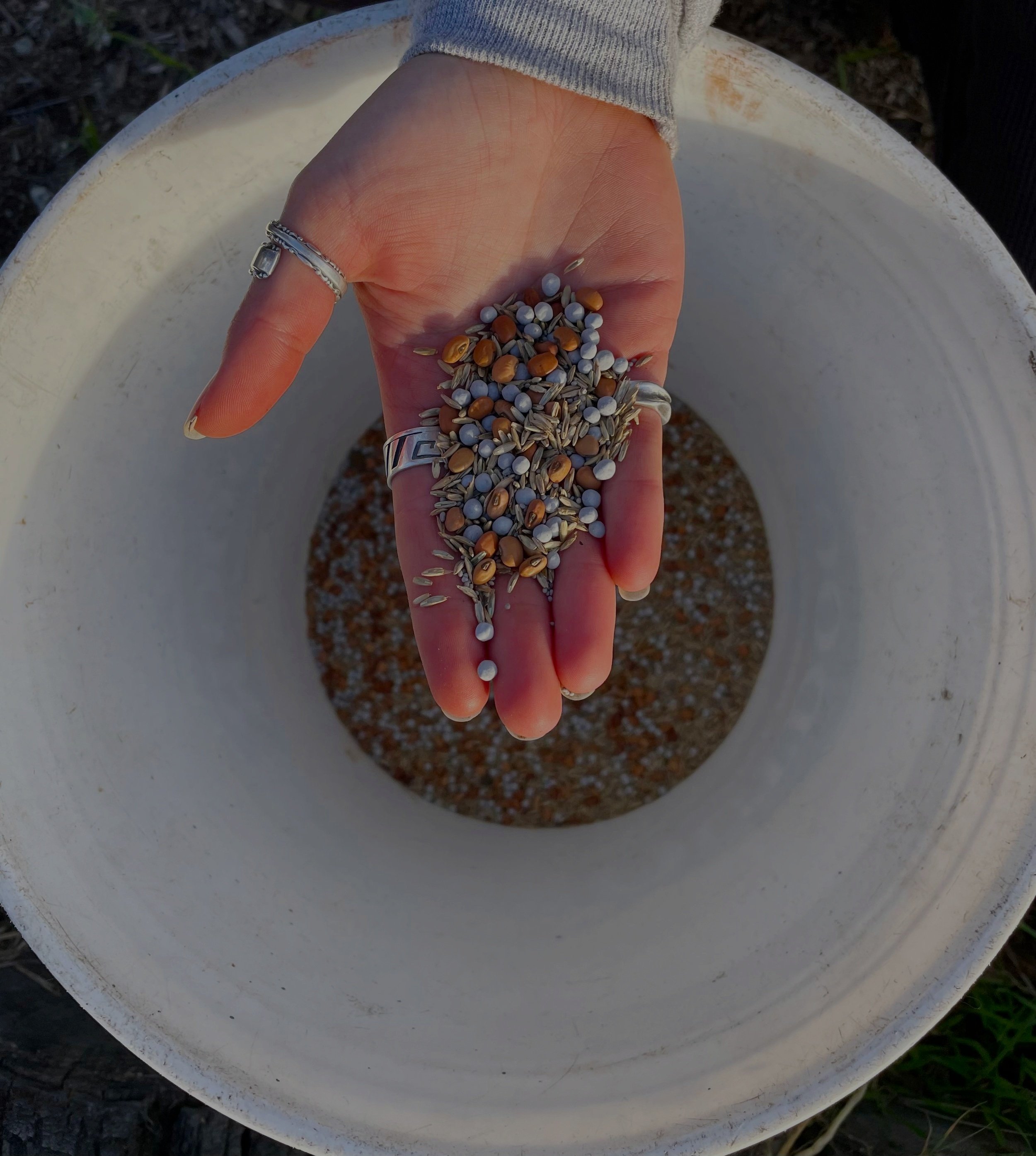Ecology and Habitat Restoration
Beehives & Pollinator Gardens
Pollinators play indispensable roles in ensuring ecosystem health, biodiversity, and food security. Our integration of diverse pollinator habitat and honeybee hives support these ecological services while providing training opportunities to the community.
To make this happen we need interested community members like you to pursue these amazing interests with us! Join our community and work on behalf of your community.
There are 2 main ways to stay engaged:
Email List: We’ll keep you posted on what’s going on.
Guild: A little more hands on, a lot like a club!
*There are lots of other things we need to help make this program a success! To learn more click here!
Our Program
Of all the plants in the world, an estimated 80% rely on pollinators. With pollinators playing such a huge role in our ecosystems and access to resources, effective pollinator conservation and management is vital. Pollinator habitat implementation, wild pollinator conservation, and sustainable beekeeping can make self-reliance, resilience, and food sovereignty accessible to the individual and the community.
REAP’s campus is a small scale representation of connected pollinator habitat. Beyond the pollinator garden, bees and other pollinators can find resources within the fragmented urban environment. Our food forest, pocket forest, permaculture gardens, and bioswale are all support systems for pollinators who, in turn, support the vitality and productivity of our food production systems.
By coordinating with municipalities, community groups, and partner organizations working in this field, we can create job pathways and foster local stewardship and resilience.
In the World
Localized, nature-based beekeeping and wild pollinator conservation are being recognized as crucial in adapting to a changing climate, preserving biodiversity, and ensuring global food security. Work is being done globally to collaborate with farmers in implementing regionally specific practices that support pollinator conservation and integration into agriculture. Support for wild pollination optimizes pollination frequency and efficiency, which improves the nutritional value and quantity of crops. Habitat integration is also effective at increasing the sustainability of farm practices.
Pollinators and the essential services they provide are being threatened by habitat loss, pesticides, and disease. This has spurred greater education, awareness, and conservation efforts to protect pollinators and the resources they need to survive.
Career Pathways
Promoting the health and conservation of pollinators creates numerous job training opportunities. Career paths in this field, whether it be in corporate sustainability and urban planning, pollination services for agriculture, or conservation, provide benefits to both communities and ecosystems. This work deepens human connection to nature, providing practical skills with therapeutic benefits that improve and enhance the environment around us.
Current Status
To get our programs up and running there are a few things that need to be established! Below are some of the key elements and where we stand in terms of getting things up and running.
It’s impassioned community members, volunteers, and funders who help us push the dial and get closer to our goals!
Program Vision
Industry Sector Analysis
Employers, Trade Organizations, and Unions
Research
Curriculum and Class Resources
On Campus Resources and Facilities
Job Placement Resources
Funding
Status Update Coming Soon!
REAP currently has a 500 square foot dedicated pollinator garden.
We have planted over 20 different species of pollinator plants and used over 200lbs of compost to support life below and above ground!
We are also continuing our efforts as we create our integrated food forest, edible park, and pollinator habitat! We continue to place pollinator plants and California native plants all over our campus!
Featured Partners
REAP’s hives are currently cared for by Bay Beehives. REAP also works with Bay Beehives to offer pollinator trainings and events.

Other ways to get involved
We are seeking volunteers to help maintain our beehives and pollinator gardens! Tasks may include planting, weeding, spreading compost, and more! Visit our volunteering page to get started.
We are always seeking one-time gifts, DAFs & grants, and in-kind donations to help our programs! Visit our donations page for more information.
Sign up for email updates here!
For more information and local initiatives around permaculture check out our Beehives & Pollinator Gardens Resource Page!








